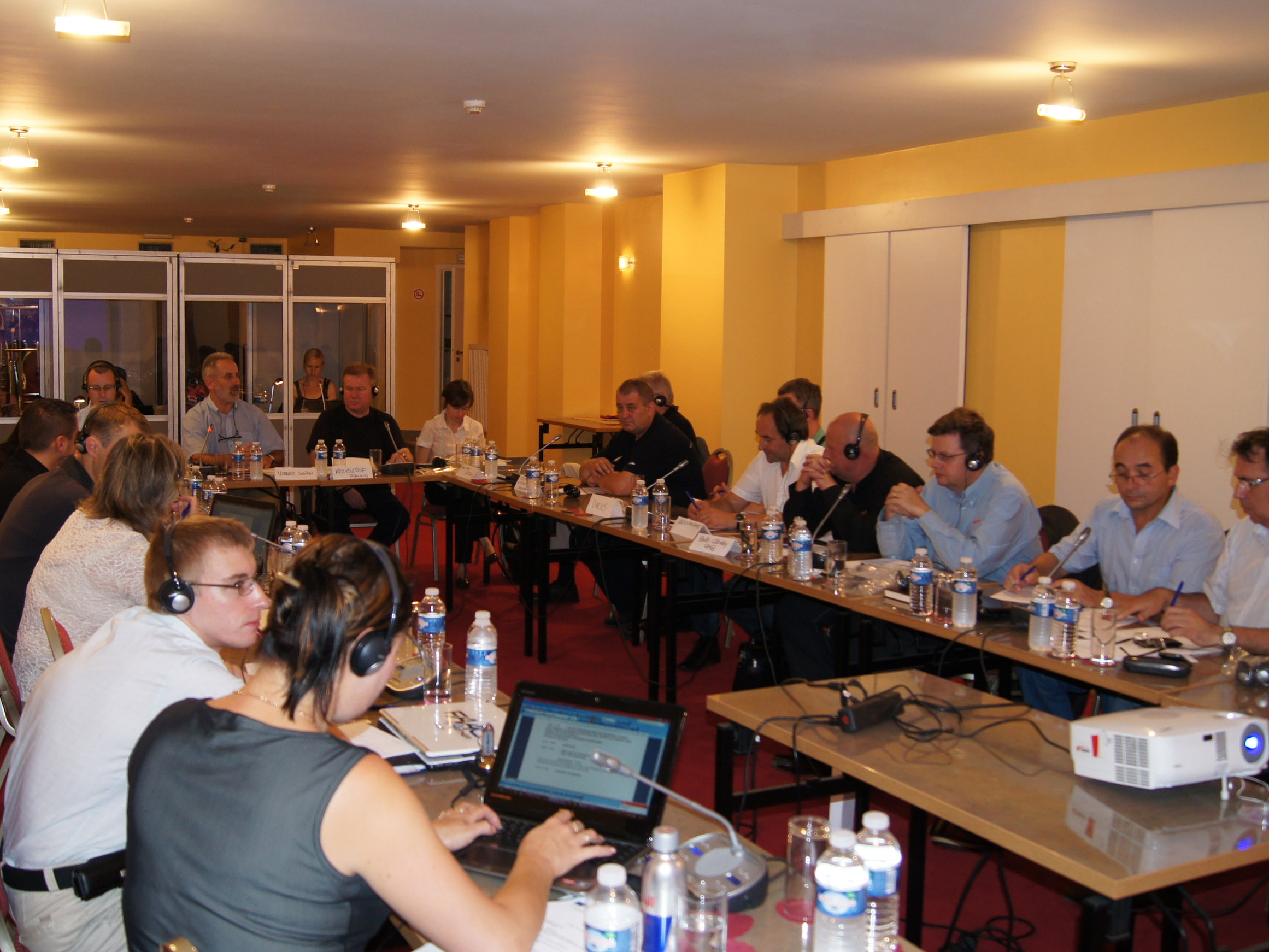News
Building unions in Eastern Europe

Social dialogue in the private security industry in Eastern Europe does not exist. Union density is very low and working conditions are poor. Security officers work 200 -300 hours per month, in precarious employment aremany are paid less than 2 EUR per hour. At the same time they are expected to perform very responsible tasks. They protect people, places and things on behalf of private companies as well as public authorities. In this situation there is an urgent need for independent trade unions in Eastern Europe to organise security workers and make them able to represent effectively their interests in the sectoral social dialogue on both national and European level.
The target group was trade unions in Eastern Europe interested in strengthening workers' representations in the private security industry. Below the list of partners we succeeded to involve into project's activities:
1. GSENTU/Bulgaria
2. LAKRS/Latvia
3. ESTAL/Estonia
4. ETKA/Estonia
5. LPSDPS/Lithuania
6. EODSZ/Hungary
7. VSZSZ/Hungary
8. OSPP/Czech Republic
Key activities
Two initiating international conferences were arranged for officials from interested trade unions. During those conferences we presented and discussed models, methods and best practice examples of organising and citizenship building. The next step involved offering four countries training workshops for active members and officials. Those training workshops aimed to identify and educate Organisers for future campaigns addressing security workers to raise their awareness of workers' rights and their participation in trade unions representing workers' interests. At the end of the project we prepared an overall plan for individual unions and presented findings and lessons of the project to representatives from European Commission and ETUC to make them aware of the situation in the private security industry in Eastern Europe and to propose the next steps that should be taken to strengthen democratic workforce organisations and independent trade unions in Eastern Europe's private security services to make them play stronger role in the sectoral social dialogue on both national and European level.
Key results
We have defined trade unionism and its main task – “A trade union is an organisation of workers who join together to build strength needed to improve their conditions and their life. Taking into the consideration the definition the main role of any trade union is to help workers to organise.” We have identified external and internal reasons for low membership levels (external reasons analysed: economic and political developments, unfriendly media, changes in the society - the usefulness of trade unionism is in doubt; internal reasons analysed: we stay in the trade union's buildings, hold meetings among ourselves or with management, concentrate on companies where we already have members and this group is shrinking, the direct contact with employees is sporadic, our resources are shrinking, we do not construct any development plans ). All the work carried out to identify what causes the bad state of trade union movement in Eastern Europe confirmed that although external reasons play a role; the main reasons are those we researched as internal ones. We have discussed in depth solutions for the internal reasons and the difference between the servicing and organising trade union models. On the basis of this, we could make unions understand that they need to adapt their structures and activities to the reality. Instead of sitting in the office buildings and waiting for workers to ask to join the union, they need to go out to find workers, make them aware of their rights and the role of the social dialogue, recruit and organise. Trade union officials and members participating in the project have learnt how to talk to workers, how to identify and recruit workers' leaders and how to plan organising campaigns. They had even the chance to prove in the practice the theory that they were provided with during the training workshops. In the time of the project union density in the private security industry in involved countries has slightly increased (unions have recruited from 73 to 257 new members).
Added value
We have discovered that unions in Eastern Europe have huge potential to grow, but need a lot of support from Western unions and international organisations to be able to adapt to economic structure based on market principles and democracy. They suffer from low union density, lack of resources and experienced union leaders. We made a first small step to initiate changes in Eastern Europe's trade union movement particularly in the private security industry. We have succeeded to find young union leaders who seemed to be willing to continue the work, but without any support from outside they will not be able to win because they are still lone fighters. To ensure the continuity of the results we should carry out next, more specified projects - for example in selected countries we could support concrete successful activities by developing and - if needed - adjusting an organising campaign plan, preparing organisers (social dialogue promoters) and coordinating activities in the field. We could present those activities as models of good practice during workshops for members of the network established in the project. The network could be also extended to include other trade unions for Eastern Europe.
Nigel Venes, UNI Organiser said; " I would like to thank NSZZ Solidarnosc and the GMB Union from the United Kingdom for their help, support and participation in this critical work that has laid some new foundations for unions to organise and grow in Eastern Europe. There is no doubt that workers in these countries face high levels of exploitation and abuse. We hope to be able to continue to work with the European Commission to put an end to this mistreatment and to develop strong unions that can participate fully in social dialogue."

